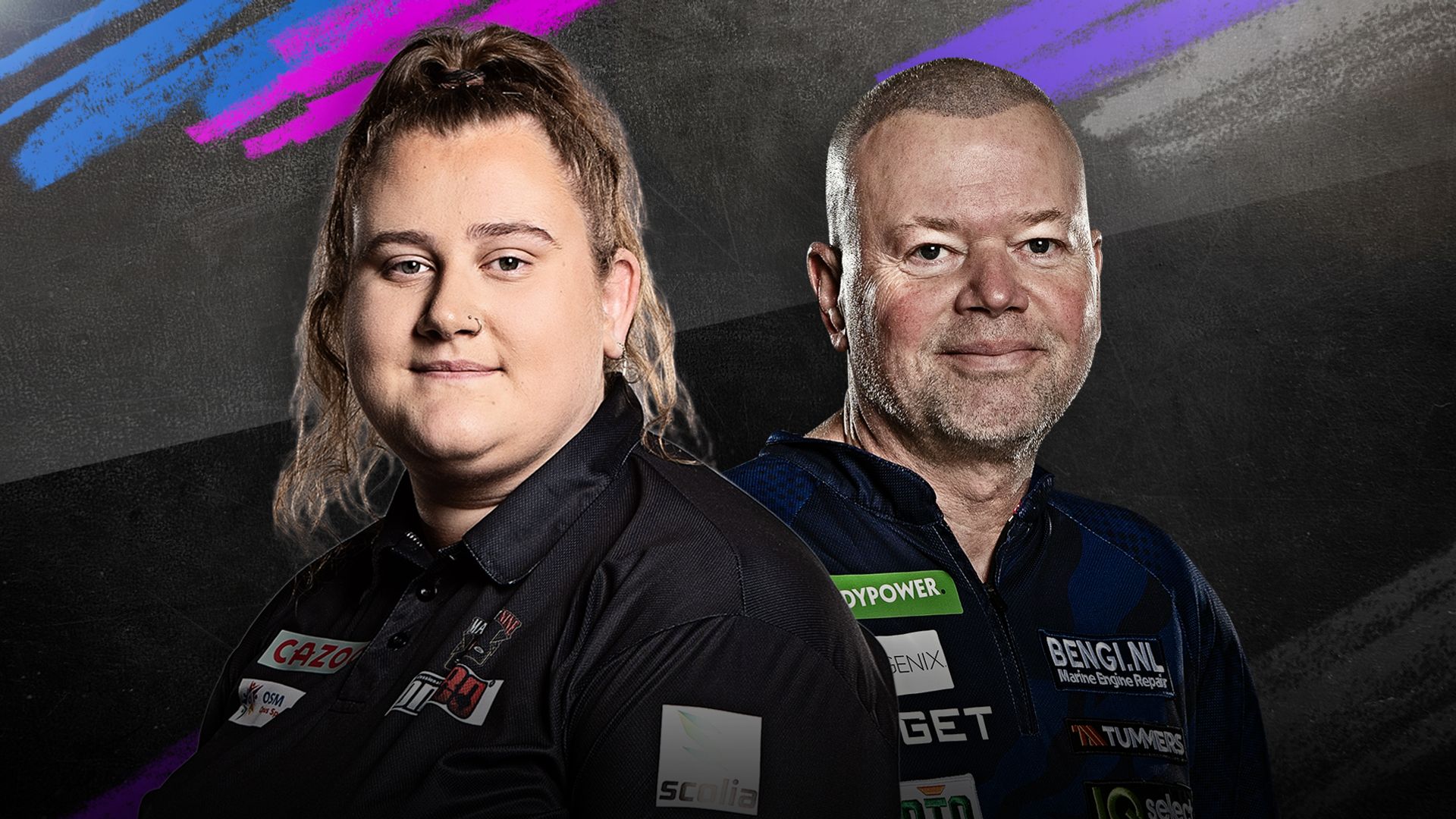Beau Greaves’ Premier League Aspirations: A Modern-Day David vs. Goliath Struggle for Recognition in a Gender-Biased Arena, With the Sports World Watching and Judging Her Every Move
Raymond van Barneveld has expressed strong support for the burgeoning career of Beau Greaves, the young and talented darts player who has been making headlines with record-breaking performances. As she eyes a coveted spot in next year’s Premier League, the call for her to prove herself further at the World Darts Championship adds another layer of narrative to her ascent in the sport. This pivotal moment is not just about darts; it echoes broader themes of gender equity in athletics and the ongoing struggle for recognition in male-dominated sports.
Women’s darts have experienced a rise in prominence over the past decade, led by trailblazers like Greaves. Yet the challenges female players face are daunting, shaped not only by the sport’s historical context but also by societal perceptions that persistently favor their male counterparts. In a landscape where male players are often celebrated as heroes, women’s achievements can sometimes be overlooked or trivialized. Greaves’ situation illustrates this precarious balance of talent and societal expectations, as her journey to the Premier League hinges on public performance, a pressure that is often amplified for women.
The Premier League of Darts, an elite platform that showcases the best players globally, has often been critiqued for its lack of female representation. While the sport has made strides with events like the Women’s World Championship, Greaves’ potential inclusion in the Premier League will serve as a litmus test for the evolving landscape of darts. If she succeeds at the World Championship, her entry into this hallowed competition could signal a shift in how female players are viewed and accepted, not just in darts but across all sports. The implications of her success extend beyond trophy lifts; they touch on issues of representation, support, and change within the sporting community.
Historically, sports have often mirrored societal attitudes, reflecting both the progressive moments and the setbacks in gender equity. In darts, despite having professional leagues and competitions for women, much of the media attention and sponsorship still tends to gravitate toward male athletes. This disparity creates a challenging battleground for players like Greaves, who’s not only fighting for wins but also for her place in a narrative that too often sidelines women.
Moreover, van Barneveld’s endorsement not only positions Greaves within the sport but also highlights the complicated dynamics of male endorsement in women’s sports. Male athletes have the power to elevate female players’ visibility, but this comes with its own set of expectations and connotations. The idea that Greaves must “prove herself” at the World Championship before gaining a seat at the Premier League table reflects a systemic issue; a top-performing female athlete should already have her place reserved based on merit, not contingent on a singular tournament outcome.
Darts, like many sports, thrives on narratives—the stories of struggle, triumph, and occasionally, downfall. Greaves has already captivated audiences with her record-setting achievements and tenacity, making her a figure of hope and change. However, the pressure of having to deliver a strong performance at a high-stakes event creates a paradoxical dilemma. It can galvanize support but also instill fear of failure, a sentiment often amplified in the context of women striving for recognition in sports where men dominate the conversation.
The World Darts Championship will pose a formidable challenge for Greaves, not only as a competition to advance her career but also as a platform to challenge existing norms within the sport. The eyes of fans, fellow players, and critics alike will focus on her performance, which amplifies the stakes to a boiling point. A strong showing could not only secure her a ticket to the Premier League but also serve as a powerful statement about the potential of women in darts.
Gender bias in sports is not a new issue, but the conversation surrounding it is gradually evolving. As younger generations of female athletes emerge, groups are working tirelessly to dismantle barriers that have historically marginalized women’s participation. The increasing visibility of women in sports—from the Olympics to professional leagues—is beginning to shift perceptions, but this transformation is uneven and ongoing. For Greaves, her challenge is not only to secure her place in the Premier League but to join the ranks of those who are rewriting the narrative of what it means to be a successful female athlete in a traditionally male sport.
The coming months will determine whether Greaves can harness the pressure of expectations and emerge victorious at the World Darts Championship. The support from established players like van Barneveld could play a crucial role, but ultimately, her performance will speak volumes. If she succeeds, she may not only carve out a niche for herself in darts but also pave the way for future generations of female players to follow.
The unfolding story of Beau Greaves encapsulates the struggles and triumphs facing women in sports today. It serves as a reminder that in the arena of athletic excellence, barriers continue to be challenged and broken. Greaves is not just competing for herself; she is emblematic of a broader fight for recognition, equality, and respect in a field that remains heavily skewed. The world will be watching as she steps onto the stage, and with her talent, she has the opportunity to create a lasting impact on the sport and beyond.

